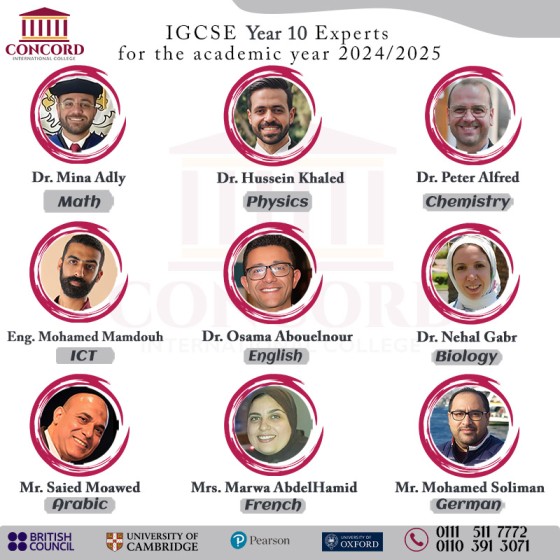 CIC
CIC

Early Years
Even though it is established as a UK curriculum for Early Years, EYFS earned an international recognition as one of the best approaches for KG stages. It is widely used in a combination with other international curriculums in Early Years . Its holistic approach can be integrated in any curriculum to provide best practice therefore we would like to provide our students the best foundation for learning and development.
The EYFS approach to early childhood education is centered on the individual learner, in contrast to traditional subject-centered and teacher-directed approaches. The key underlying principles of EYFS pedagogy are based on a respect for the individual nature of each child, and the family and culture from which they come.
EYFS holistic approach is based on 7 areas of development which are integrated into every subject your child has throughout the KG stages.
English
Framework:
- The teachers follow the framework of Cambridge Primary English as Second Language (0057).
- Students are required to learn and apply the skills and concepts not memories the material.
- Students will learn and apply critical thinking strategies, and 21st Century skills.
- Teaching and learning process follows five phases: Engage, Explore, Explain, Elaborate and Evaluate.
- Teachers create student centered classrooms applying the humanitarian approach using:
Games / Mind Maps
Songs /Movies
Note taking skills
Cooperative learning structures
Course Description:
The English as a Second Language curriculum empowers even the youngest learners to communicate confidently and effectively. Learners develop their English skills as they write fables, perform poetry and analyze news.
They’ll discover a wide range of international fiction, non-fiction, poetry and drama, giving them experience with different genres and text types.
The program promotes active learning, develops thinking skills and encourages intellectual engagement.
Math
Framework will:
- be a map of the full domain of mathematical knowledge from pre-school to the end of the upper secondary phase of education and training arrangements
- be loosely age-related and based on progressions in organising concepts and principles
- be a basis for deriving standards
- be illustrated by indicative content and exemplar performance
- allow for the description of skills and dispositions necessary for effective use of mathematics.
Course Description
- Cambridge Primary Mathematics helps learners become confident and successful mathematicians through a fun and engaging scheme.
- The series takes an investigatory approach to help children learn the skills of problem solving and encourages learners to be independent thinkers with the confidence to tackle a wide range of mathematical problems.
Science
Frame work:
- This framework provides a comprehensive set of progressive learning objectives for science. The objectives detail what the learner should know or what they should be able to do in science in each year of primary education. They provide a structure for teaching and learning and a reference against which learners’ ability and understanding can be checked.
- The Cambridge Primary Science curriculum is presented in four content areas: Scientific enquiry, Biology, Chemistry and Physics. Scientific enquiry is about considering ideas, evaluating evidence, planning investigative work and recording and analysing data. The Scientific enquiry objectives underpin Biology, Chemistry and Physics, which are focused on developing confidence and interest in scientific knowledge. Environmental awareness and some history of science are also incorporated. The Cambridge Primary Science curriculum framework provides a solid foundation upon which the later stages of education can be built.
Course description:
- The series has been made by teachers and learners in over 100 countries for teaching the Cambridge International Primary Science Curriculum framework.
- The series uses the most successful teaching pedagogies like active learning and metacognition.
- Clear consistent differentiation ensures that all learners are able to progress in the course with tiered activities, and differentiated worksheets.
- The series still has extensive digital and online support, including digital classroom, which lets easy to share books between teachers and students.

